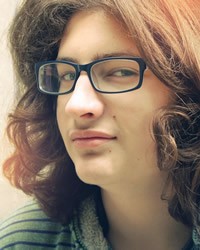Jewish, Spanish-speaking in Uruguay

Photo Source:
pxfuel
|
Send Joshua Project a map of this people group.
|
| People Name: | Jewish, Spanish-speaking |
| Country: | Uruguay |
| 10/40 Window: | No |
| Population: | 16,000 |
| World Population: | 286,900 |
| Primary Language: | Spanish |
| Primary Religion: | Ethnic Religions |
| Christian Adherents: | 0.00 % |
| Evangelicals: | 0.00 % |
| Scripture: | Complete Bible |
| Ministry Resources: | Yes |
| Jesus Film: | Yes |
| Audio Recordings: | Yes |
| People Cluster: | Jewish |
| Affinity Bloc: | Jewish |
| Progress Level: |
|
Introduction
In 1907, Sephardic Jewish immigrants began arriving in Uruguay from Turkey. By 1920, they had established retail stores in Montevideo. Uruguay was the first Latin American country to recognize the state of Israel and establish diplomatic ties with that new nation. Over 10,000 Uruguayan Jews have immigrated to Israel since 1973. This, combined with an aging population and intermarriage, has decreased the Jewish population. The Jewish cultural connection that once tied the community together has basically been replaced with secularism and nominal adherence to Torah Judaism.
Ministry Obstacles
Among Uruguay's Spanish-speaking Jewish population there are no known followers of Christ. It is difficult for followers of Christ to befriend the Uruguayan Jewish in order to share with them the power of God and his grace found in Jesus.
Outreach Ideas
Pray for the Followers of Christ
Pray for the Entire People Group
Ask the Lord of the harvest to send forth loving Christ-followers to work among the Jewish communities in Uruguay.
Pray that the Jewish will understand that Jesus is the long-awaited Messiah.
Ask the Lord to soften the hearts of the Jews towards Christians so that they might hear and receive the message of salvation.
Pray that strong local churches will be raised up in each Jewish community in South America.